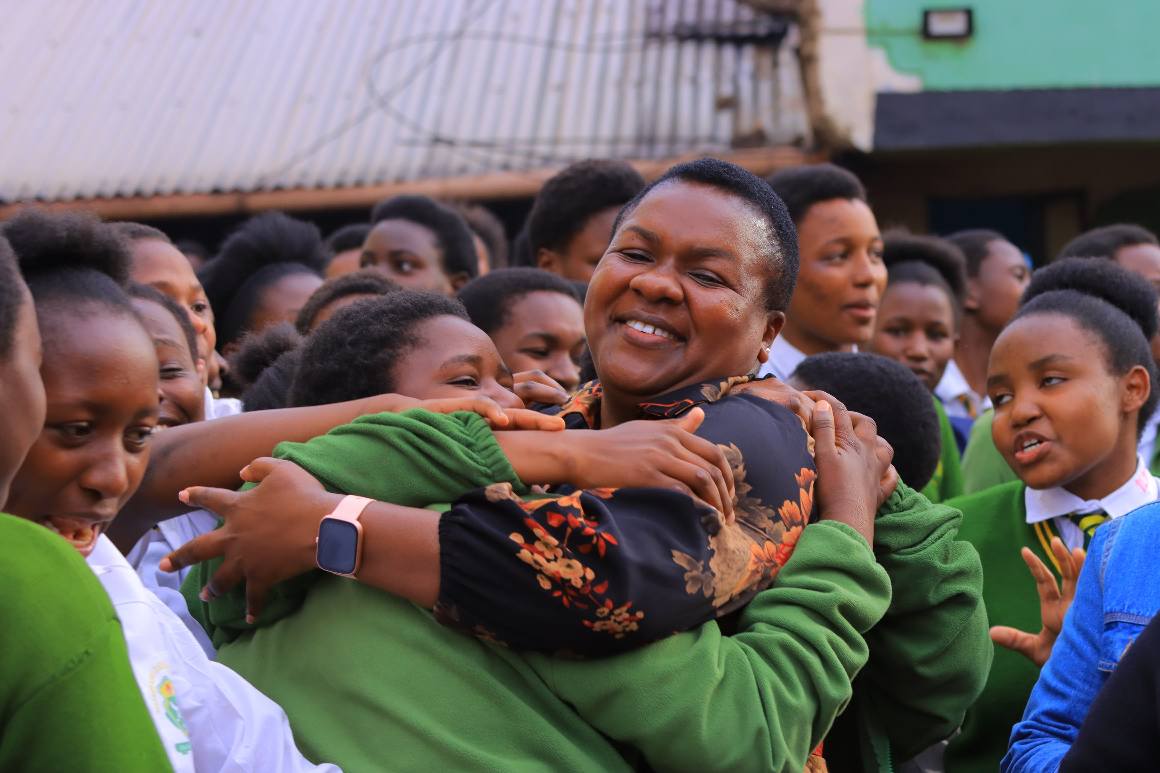By Robert Nyagah
Widespread secretive performance of Female Genital Mutilation (FGM) on girls in Mbeere South in Embu County has been found to disrupt the education of girls despite presumed successes in campaigns to curb the retrogressive surgery.
A University of Nairobi Department of Education scholar Ajerica Kaathi Njiru in a recent research unearthed damning details clearly pointing that FGM continues to have hugely negative impact on the girls’ education in Mbeere South.
“FGM negatively influences girls’ performance at a very high extent with 80 per cent of the girls that went through the cut registering below average performance,” indicated the researcher adding that 70 per cent of the girls who did not face the cut performed better.
According to the scholar, the study revealed that 40 per cent of those learners who had FGM performed on them concentrated more on issues outside school hence were not paying attention to teachers and that translated to their dismal performance.
While controversy still persists on those who support or oppose FGM, the researcher ascertained that 90% and 100% of the teachers and head teachers respectively indicated that FGM influence girls’ dropout rates at a very high extent.
“80 per cent of students agreed that more girls who had undergone FGM were more likely to drop out of school than those that never went through the cut,” said Kaathi.
In fact it emerged that the teachers, head teachers and chiefs respectively agreed that the majority of girls who went through the cut rarely studied up to secondary school or tertiary colleges.
The research indicates that more than 80 per cent of the interviewed teachers opposed parents who embraced the practice and encouraged their daughters to drop out of school and engage in other vices influenced by FGM.
The surgery traditionally taken as an initiation to adulthood and hence ripeness to marriage among girls has been silently driving hundreds of primary and secondary school aged girls out of learning institutions even at the height of intensive campaigns against the vice.
Experts agree that while a lot of tumult is raised in campaigns against the vice, the surgery has been deeply “institutionalized” among the Embu and Mbeere Communities.
It emerged that only 10 per cent of the girls who underwent FGM were likely to continue with education with up to 90 per cent of the girls prioritizing marriage to schooling.
Interestingly, FGM is silently taking root even among families viewed as deeply religious and whose members attend the hugely popular churches in the country, which are the Roman Catholic and the Anglican churches.
Women, mainly mothers, guardians and close relatives generally presumed the closest caretakers of the girl child have sadly been known to be the key culprits in organizing the now worrying secretive FGM ceremonies.
A cross section of anti FGM campaigners say that there should be increased advocacy and lobbying, increased law enforcement and equipping of law enforcing agents to combat the vice.
Anti FGM campaigners suggested the need to increase the use of media to show the negatives of the vice with better recognition of the positive role faith-based organizations could play in eradicating the evil.
Although efforts were made to ensure that guidance and counseling teachers pursued girls who dropped out of school after undergoing FGM in an effort to convince them to resume their studies, the scholar revealed that such campaigns did not yield much.
Those efforts mostly failed because after undergoing FGM, majority of the girls ended up in early marriages or pregnancies which discouraged them from resuming learning.
“Most girls who have gone through FGM are married off at an early age than those that have not,” said Kaathi.
It emerged that only 10 per cent of the girls who underwent FGM were likely to continue with education with up to 90 per cent of the girls prioritizing marriage to schooling.
Parents, it was found, actually participated in arranging forced early marriages for their girls thus forcing most to flee from home, sometimes to be housed in relatives’ homes.
Also, girls who underwent the cut, the researcher found, assumed they were mature and freely engaged themselves in premarital relationships, and were in pursuit of marriage and settling down as wives instead of pursuing education or professional careers.
“Some of the girls tended to easily fall into truancy and engage in sexual relations and practices which most resulted to early pregnancies and marriages,” added Kaathi.
The scholar however calls for intensified campaigns to tackle FGM in Mbeere North in general noting that the government should lead the way in ensuring that parents and the community are sensitized on the importance of the girl child education.
Faith based organizations (FBOs), the scholar argues should expand programs to educate people on dangers related to FGM practice to ensure that the education, health and the life of the girl child is safeguarded from the dangers of the vice.






